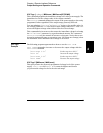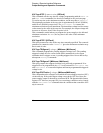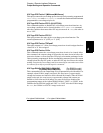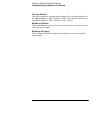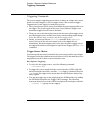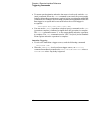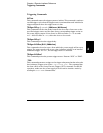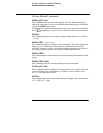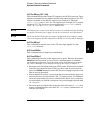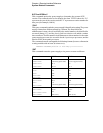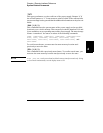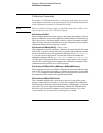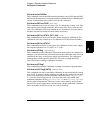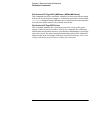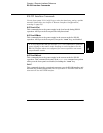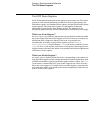
Chapter 4 Remote Interface Reference
System-Related Commands
95
4
OUTPut:RELay {OFF | ON}
This command sets the state of two TTL signals on the RS-232 connector. These
signals are intended for use with an external relay and relay driver. The TTL
output is available on the RS-232 connector pin 1 and pin 9. When the
OUTPut:RELay
state is ‘‘ON’’, the TTL output of pin 1 is high (4.5 V) and pin
9 is low (0.5 V). The levels are reversed when the
OUTPut:RELay
state is
‘‘OFF’’. At
*RST
, the
OUTPut:RELay
state is OFF.
Note TTL output of pin 1 or pin 9 of the RS-232 connector is available only after installing
two jumpers inside the power supply. See the Service Guide for more information.
Note Do not use the RS-232 interface if you have configured the power supply to output
relay control signals. Internal components on the RS-232 circuitry may be damaged.
OUTPut:RELay?
This command returns the state of the TTL relay logic signals. See also
OUTP:REL
command.
SYSTem:BEEPer
This command issues a single beep immediately.
SYSTem:ERRor?
This command queries the power supply’s error queue. When the front-panel
ERROR annunciator turns on, one or more command syntax or hardware
errors have been detected. Up to 20 errors can be stored in the error queue.
See ‘‘Error Messages’’ for a complete listing of the errors in chapter 5.
• Errors are retrieved in first-in-first-out (FIFO) order. The first error returned
is the first error that was stored. When you have read all errors from the
queue, the
ERROR annunciator turns off. The power supply beeps once each
time an error is generated.
• If more than 20 errors have occurred, the last error stored in the queue (the
most recent error) is replaced with -350, ‘‘Too many errors’’. No additional
errors are stored until you remove errors from the queue. If no errors have
occurred when you read the error queue, the power supply responds with
+0, ‘‘No error’’.
• The error queue is cleared when power has been off or after a
*CLS
(clear
status) command has been executed. The
*RST
(reset) command does not
clear the error queue.



